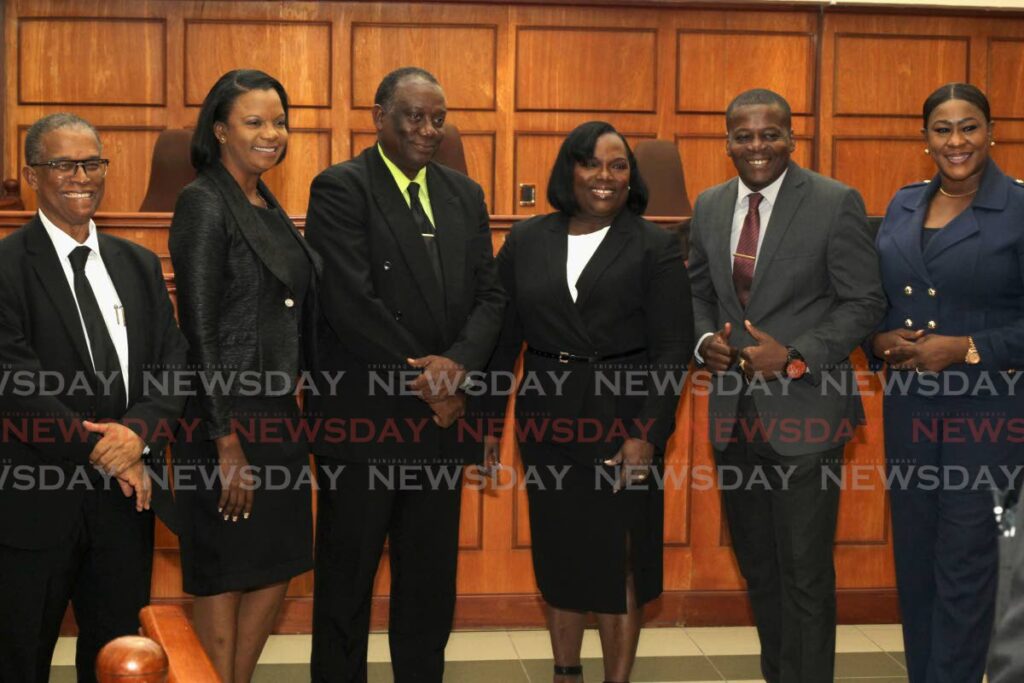Thomas-Felix: 7-10 year delay in wage-talks harms all

INDUSTRIAL Court President Deborah Thomas-Felix on Monday lamented the fact of long-outstanding wage negotiations, warning that delays of seven-ten years hurt both employee and employer.
She was addressing a special sitting of the court in Port of Spain to mark the opening of the 2022/2023 law term, attended by Chief Justice Ivor Archie, Attorney General Reginald Armour, SC, Labour Minister Stephen Mc Clashie, CCJ President Adrian Saunders, OWTU head Ancel Roger, CWU head Clyde Elder, NATUC head Michael Annisette, Couva South MP Rudranath Indarsingh, Port of Spain mayor Joel Martinez, public officials and foreign diplomats.
Saying some public-sector negotiations were now under way, Thomas-Felix noted much anxiety among workers.
She commented, "I have always held the view that collective bargaining for new collective agreements must be contemporaneous to the period under review.
"One wonders what value can be derived by workers and also by employers when they negotiate for new terms and conditions seven-ten years after the period in review.
"Often the new negotiated terms bear little relevance to the past."
She said parties in stalled talks could seek ministerial help.
"Indeed, there is nothing which prevents one of the parties engaged in collective bargaining from reporting a breakdown of negotiation to either the Minister of Labour or the Minister of Finance, while at the same time commencing fresh negotiations for a collective agreement for a new period. There is no reason to wait until the expiration of two or three terms before making the formal report of a breakdown in negotiations.
"I do hope that some thought and consideration will be given by employers and trade unions both in the public and private sectors to engage in collective bargaining for new collective agreements contemporaneously."
She said only 23 negotiations had broken down this year, far fewer than the 42 breakdowns last year.
Thomas-Felix listed how many collective agreements were registered at the Industrial Court, disputes brought in litigation, and cases disposed of.
"In 2019, out of a total of 40 new collective agreements registered, 38 were from the private sector. In 2020 there were 55 new agreements registered, with 50 from the private sector. In 2021, 104 new collective agreements were registered, with 85 from the private sector. And for this year so far 90 new collective agreements were registered, 73 of which are from the private sector."
From September 2021-September 2022, some 1,099 new cases were filed at the court, up from 966 cases for the same period last year.
"The court disposed of 797 matters this year in review, which was 240 less than the 1,037 matters disposed of for the same period in 2020/2021."
This amounted to a case-disposal rate of 72 per cent this year and 107 per cent last year, she said.
Felix-Thomas gave details of the nature and outcome of cases before the court in the past year. She said cases in 2021-2022 consisted of 730 trade disputes, 124 retrenchment/severance disputes, 111 OSH cases and 58 industrial-relations offences.
From March 2020-September 2022 the court received 2,516 cases, she said, despite some sectors having been closed owing to pandemic measures.
"The total number of disputes disposed during the year in review are as follows: 193 judgements, 312 cases were withdrawn, 263 matters were settled through the conciliation and bilateral process, and 29 matters were dismissed."
Felix-Thomas surmised, "These figures tell a story and suggest that there is a need for more discussions and agreement at the workplace."
She said the pandemic had taught that no man was an island and that in times of crisis one must be one's brother’s keeper.
"I therefore urge the social partners to work together to contribute to this nation’s further development. Step back from deeply entrenched positions that have born no fruit thus far and take a leap to embrace genuine consultation with the persons seated on the opposite side of the table."

Comments
"Thomas-Felix: 7-10 year delay in wage-talks harms all"